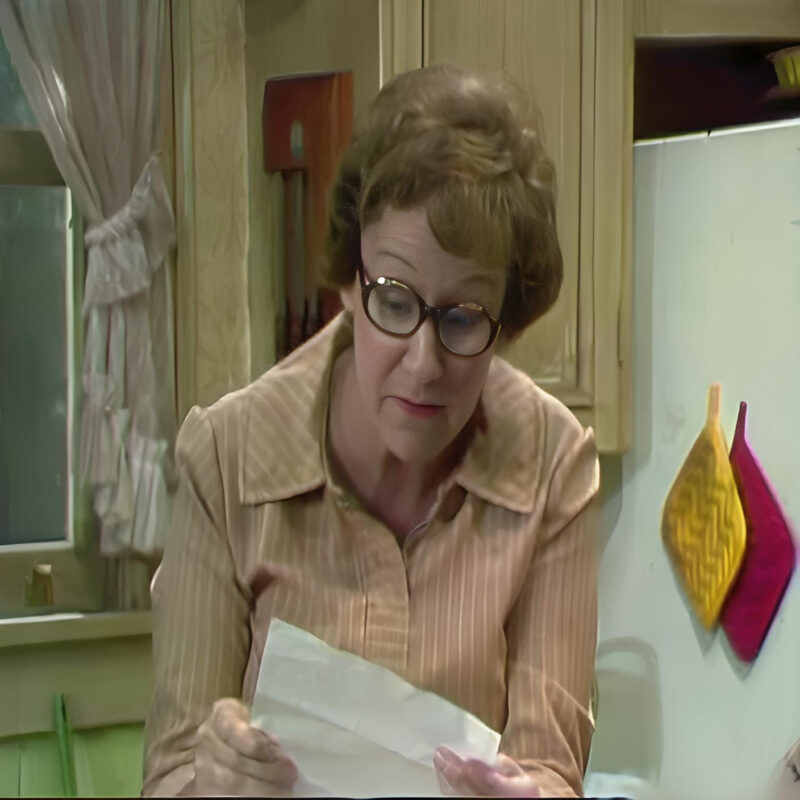
WASHINGTON, D.C. — The Smithsonian’s National Museum of American History has recently been enriched by a generous donation from the family of beloved actress Jean Stapleton. This remarkable collection, which showcases the breadth and depth of Stapleton’s career, includes iconic items from her unforgettable role as Edith Bunker in All in the Family.
The donated items feature the famous apron worn by Stapleton on All in the Family, a crew jacket from the set, various awards from her distinguished career in theater and television, as well as costumes, props, and memorabilia from her work as a women’s rights activist. Notably, the collection also includes papers that highlight her dedication to the legacy of Eleanor Roosevelt, according to a news release from the museum.
Jean Stapleton, who passed away in 2013, spent 25 years living in the greater Chambersburg, Pa., area with her husband, William H. Putch. From 1958 to 1983, she was a regular performer at the Totem Pole Playhouse theater in Fayetteville, Pa., solidifying her reputation as a versatile and talented actress.
Pam Putch, Stapleton’s daughter, expressed her enthusiasm about collaborating with the museum’s curators. “They came to California. They were enthusiastic about the depth of her career in the theater… (and) it seemed like a perfect fit,” Putch shared in a telephone interview.
Despite gaining international fame for her role as Edith Bunker, Stapleton’s heart always belonged to the theater. The Smithsonian donation is a treasure trove of photos, programs, scripts, clippings, and memorabilia from her extensive theater career, which included 81 productions at the Totem Pole Playhouse.
The idea for the donation blossomed when Putch saw Archie Bunker’s hat displayed at the Smithsonian and remembered the apron stored in her kitchen drawer. This inspired the family to contribute a broader array of items, reflecting Stapleton’s impactful career and advocacy.
The museum’s new acquisitions also highlight Stapleton’s significant contributions to the women’s movement in the late 1970s and early 1980s. She became a symbol of emergent feminism and portrayed Eleanor Roosevelt in a TV movie, earning an Emmy nomination for her performance.
“It seemed to us this is more than an actor who became famous for playing Edith Bunker. I think I’d be thrilled if (museum visitors) saw how broad and deep her career was. She was such a talented, great artist,” Putch said, emphasizing her mother’s multifaceted talents and enduring legacy.
Putch believes her mother would be both frustrated by the ongoing struggle for gender equality and thrilled by the current momentum of the movement.
While there are no immediate plans to display the newly donated items, the museum is developing an exhibition that will explore American culture through its theater, music, sports, and entertainment collections. This eagerly anticipated exhibition is expected to open in 2020, offering visitors a deeper look into the life and career of Jean Stapleton.
In addition to their mother’s memorabilia, Putch and her brother are also working to donate their father’s archives to another institution, ensuring that the legacy of both their parents will continue to inspire future generations.
